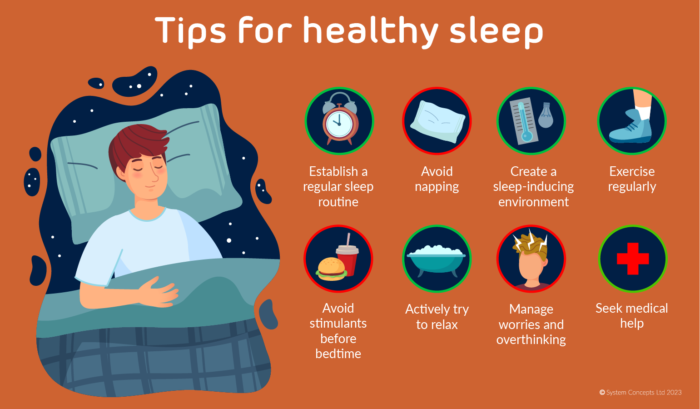The Essential Health Guide for Businessmen: Balancing Wellness with a Demanding Career
In the hectic world of business, managing teams, achieving deadlines, and closing deals frequently come before taking care of your health. Nevertheless, your general well-being is directly related to your ability to succeed in business. Maintaining a healthy lifestyle improves focus, increases productivity, and promotes long-term career sustainability. With the demands of a high-stakes career in mind, this guide provides businessmen with doable ways to help them manage their health.

1. Physical Health
Maintaining physical health is crucial for sustaining energy levels and overall performance:
- Regular Exercise: Incorporate at least 150 minutes of moderate aerobic activity or 75 minutes of vigorous activity each week, along with strength training exercises. Choose activities that fit your schedule, such as early morning workouts, lunchtime gym sessions, or weekend sports.
- Healthy Eating: Opt for a balanced diet rich in fruits, vegetables, lean proteins, and whole grains. Plan your meals and snacks to avoid unhealthy fast-food options. Consider meal prepping or using a meal delivery service to ensure you have nutritious options available.
- Hydration: Drink plenty of water throughout the day. Carry a reusable water bottle and set reminders to stay hydrated, particularly if you have a busy or traveling schedule.
2. Manage Stress Effectively
High stress levels can affect both physical and mental health. Implement strategies to manage stress:
- Mindfulness and Relaxation: Practice mindfulness techniques such as meditation, deep breathing exercises, or yoga. Apps like Headspace or Calm can provide guided sessions.
- Work-Life Balance: Set clear boundaries between work and personal time. Avoid checking emails or handling work-related tasks outside of business hours.
- Delegate Responsibilities: Don’t hesitate to delegate tasks to team members or seek support from colleagues. This helps distribute the workload and reduces personal stress.

3. Establish a Healthy Sleep Routine
Good sleep is fundamental to maintaining health and productivity:
- Consistent Schedule: Aim for 7-9 hours of sleep per night and stick to a regular sleep schedule, even on weekends. This helps regulate your body’s internal clock.
- Create a Restful Environment: Ensure your sleep environment is conducive to rest—use a comfortable mattress, minimize noise and light, and avoid screens before bedtime.
- Manage Sleep Disruptions: If you have trouble sleeping due to work stress or travel, consider relaxation techniques or consult a healthcare professional for advice.

4. Incorporate Movement Throughout the Day
Prolonged sitting can lead to health issues such as back pain and poor posture:
- Stand Up Regularly: Incorporate standing or walking breaks into your day. Use a standing desk or take short walks during meetings or between tasks.
- Stretch and Move: Perform simple stretches or exercises at your desk to alleviate tension and improve circulation. Consider using apps or devices that remind you to move periodically.
5. Manage Your Mental Health
Maintaining mental health is as important as physical health for long-term success:
- Seek Professional Support: If you’re experiencing significant stress, anxiety, or depression, consider talking to a mental health professional. Therapy or counseling can offer valuable strategies and support.
- Practice Self-Care: Make time for activities that relax and recharge you, whether it’s reading, hobbies, or spending time with loved ones. Self-care helps balance the demands of a high-pressure job.

6. Develop a Support System
Building a network of support can help manage stress and maintain well-being:
- Connect with Peers: Engage with other professionals or business leaders who understand the pressures of your role. Networking events, industry groups, or mentorship programs can provide valuable support and advice.
- Lean on Family and Friends: Maintain strong relationships with family and friends. Their support can provide emotional stability and help you stay grounded.

7. Plan Regular Health Check-ups
Routine health check-ups are essential for early detection and prevention of health issues:
- Annual Exams: Schedule regular visits with your primary care physician and any necessary specialists. Keep track of your health metrics, such as blood pressure, cholesterol levels, and weight.
- Dental and Vision Care: Don’t neglect dental and eye health. Schedule regular visits to the dentist and optometrist to address any concerns promptly.

8. Create a Productive Work Environment
An organized and ergonomic workspace can improve productivity and reduce physical strain:
- Ergonomics: Invest in an ergonomic chair and desk setup to support good posture and reduce strain. Ensure your workstation is set up to minimize discomfort and support efficient work.
- Declutter: Keep your workspace organized to enhance focus and reduce stress. An orderly environment can improve efficiency and mental clarity.
9. Stay Socially Engaged
Maintaining social connections is important for mental and emotional health:
- Engage in Networking: Attend industry events, conferences, or social gatherings to build and maintain professional relationships. Networking can provide support and open new opportunities.
- Cultivate Personal Relationships: Make time for social activities with family and friends. Building and maintaining personal connections helps balance work with personal fulfillment.

10. Reflect and Adjust
Regularly assess your health and work practices to ensure you’re on the right track:
- Self-Evaluation: Periodically evaluate your work-life balance, stress levels, and overall health. Adjust as needed to improve your well-being and productivity.
- Set Health Goals: Establish specific health and wellness goals to guide your efforts. Track your progress and make changes to your routine as necessary.
Embracing a Holistic Approach to Business Success
Balancing the demands of a high-pressure career with maintaining your health is essential for long-term success and well-being. By prioritizing physical health, managing stress, establishing a healthy sleep routine, and creating a supportive work environment, you can achieve a sustainable and fulfilling career. Remember, taking care of your health is not just about preventing illness—it’s about enhancing your quality of life and performance in every aspect of your professional and personal life.





